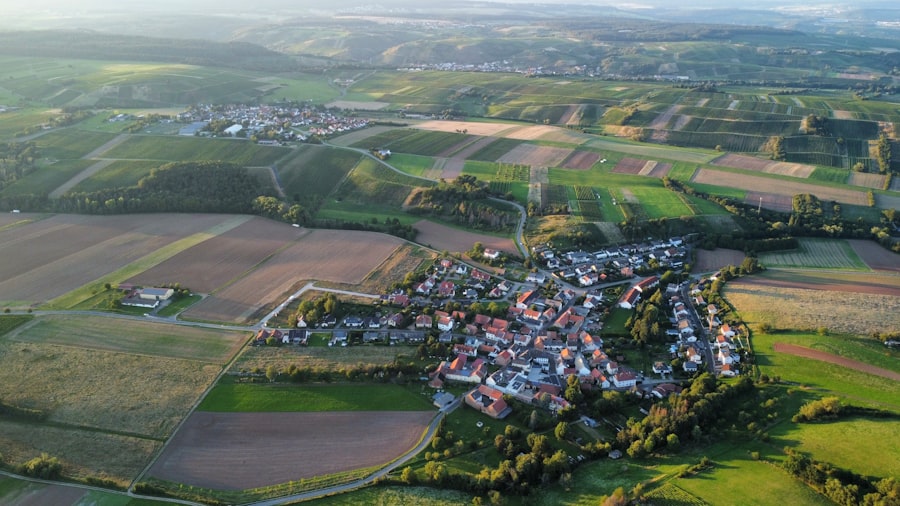The decision to permit urban chicken keeping has generated substantial debate in many cities. This policy shift is often considered as a means to encourage sustainable living practices and enable residents to engage in small-scale food production. The growing interest in urban agriculture and the desire for more self-sufficient lifestyles have contributed to the consideration of such measures.
Allowing chickens in urban areas can potentially impact community dynamics and residents’ relationships with their local environment. Cities implementing these policies typically establish regulations regarding coop size, number of chickens allowed, and maintenance requirements to address concerns about noise, odor, and public health. Proponents argue that urban chicken keeping can provide fresh eggs, reduce food waste through composting, and foster a greater connection to food sources.
However, critics raise concerns about potential nuisances, zoning conflicts, and the welfare of the animals in urban settings. The decision to allow urban chickens reflects a broader trend of reimagining urban spaces and their potential for food production and sustainability initiatives.
Table of Contents
- 1 Benefits of Keeping Chickens in the City
- 2 Regulations and Guidelines for Keeping Chickens
- 3 Impact on the Community
- 4 Challenges and Concerns
- 5 Success Stories of Other Cities
- 6 Conclusion and Future Outlook
- 7 FAQs
- 7.1 What is the article about?
- 7.2 Why is the city paying residents to keep chickens?
- 7.3 How much is the city paying residents to keep chickens?
- 7.4 Are there any restrictions or regulations for keeping chickens in the city?
- 7.5 What are the benefits of keeping chickens in the city?
- 7.6 Is this program unique to the city in Texas, or are other cities implementing similar initiatives?
Key Takeaways
- The city has decided to allow residents to keep chickens in their backyard.
- Keeping chickens in the city can provide fresh eggs, natural pest control, and educational opportunities for children.
- Regulations and guidelines include limits on the number of chickens, coop requirements, and noise restrictions.
- Keeping chickens can build a sense of community, promote sustainable living, and provide opportunities for local businesses.
- Concerns about noise, odors, and potential health risks need to be addressed, along with proper education and enforcement of regulations.
- Other cities have successfully implemented chicken-keeping programs, leading to positive community engagement and environmental benefits.
- The decision to allow chicken-keeping in the city has the potential to create a more sustainable and connected community for the future.
Benefits of Keeping Chickens in the City
Fresh and Sustainable Food Source
One of the most obvious advantages is the production of fresh, organic eggs. By keeping chickens, residents can have a sustainable source of high-quality protein right in their own backyard.
Practical Benefits for the Garden
Chickens can also provide natural pest control by eating insects and other pests that can be harmful to gardens and crops. They also produce nutrient-rich fertilizer that can be used to improve soil quality and promote healthy plant growth. Furthermore, keeping chickens can also be a great educational opportunity for children and adults alike, teaching them about responsibility, animal care, and sustainable living practices.
Positive Impact on Mental Health
In addition to these practical benefits, keeping chickens can also have positive effects on mental health. Studies have shown that spending time with animals can reduce stress and anxiety, and caring for chickens can provide a sense of purpose and fulfillment. Furthermore, the act of caring for animals can promote a sense of connection to nature and the environment, which is especially important in urban settings where people may feel disconnected from the natural world.
Regulations and Guidelines for Keeping Chickens

While allowing residents to keep chickens in the city can have many benefits, it is important to have regulations and guidelines in place to ensure that it is done in a responsible and sustainable manner. These regulations may include limits on the number of chickens allowed per household, requirements for coop size and design, and guidelines for proper care and maintenance of the chickens. Additionally, there may be regulations regarding noise levels, waste management, and other potential concerns associated with urban chicken keeping.
It is important for cities to work with experts in animal welfare and urban agriculture to develop these regulations and guidelines. By doing so, they can ensure that urban chicken keeping is done in a way that is safe, humane, and beneficial for both the chickens and the community as a whole.
Impact on the Community
The impact of allowing urban chicken keeping on the community can be significant. By providing residents with the opportunity to produce their own food, cities can promote self-sufficiency and reduce reliance on industrial food production. This can have positive effects on public health by increasing access to fresh, healthy food and promoting a more active lifestyle through gardening and animal care.
Furthermore, allowing urban chicken keeping can also promote community engagement and social connections. It can provide opportunities for neighbors to come together to share resources, knowledge, and experiences related to chicken keeping. This can foster a sense of community and cooperation, which is especially important in urban settings where people may feel isolated or disconnected from their neighbors.
Challenges and Concerns
While there are many benefits to allowing urban chicken keeping, there are also potential challenges and concerns that need to be addressed. One of the main concerns is the potential for noise and odor from chicken coops to disturb neighbors. Additionally, there may be concerns about waste management and the potential for attracting pests such as rodents or flies.
Another concern is the potential for animal welfare issues if residents are not properly educated on how to care for chickens. It is important for cities to provide resources and support for residents who are interested in keeping chickens, including educational materials, workshops, and access to experts in animal care.
Success Stories of Other Cities

Here is the rewritten text with 3-4 Urban Chicken Keeping: A Model for Success
Many cities have successfully implemented programs to allow urban chicken keeping, providing valuable lessons and examples for others who are considering this move.
### Successful Models to Follow
Cities like Portland, Oregon, and Madison, Wisconsin have developed comprehensive regulations and guidelines for urban chicken keeping that have been successful in promoting responsible and sustainable practices. These cities have seen positive impacts on their communities, including increased access to fresh, healthy food, improved community engagement, and a greater sense of connection to nature.
### Learning from Success Stories
By studying these success stories, other cities can learn from their experiences and develop their own programs for urban chicken keeping that are tailored to their unique needs and challenges.
### Replicating Success in Other Cities
By adopting similar approaches, other cities can also reap the benefits of urban chicken keeping, including a more sustainable and connected community.
Conclusion and Future Outlook
In conclusion, the decision to allow urban chicken keeping has the potential to have a significant impact on communities by promoting sustainable living practices, providing access to fresh food, and fostering community engagement. However, it is important for cities to develop regulations and guidelines to ensure that urban chicken keeping is done in a responsible and sustainable manner. By learning from the experiences of other cities and working with experts in animal welfare and urban agriculture, cities can develop programs for urban chicken keeping that are beneficial for both residents and the community as a whole.
With careful planning and consideration of potential challenges and concerns, urban chicken keeping has the potential to be a valuable addition to cities’ efforts to promote sustainability and self-sufficiency.
If you’re interested in starting your own chicken coop in your backyard, you may want to check out this article on portable chicken coops. It provides valuable information on how to move your coop around your property to give your chickens fresh grazing areas. This could be especially helpful for city dwellers who have limited space but still want to keep chickens.
FAQs
What is the article about?
The article is about a city in Texas that has implemented a program to pay residents to keep chickens on their property.
Why is the city paying residents to keep chickens?
The city is paying residents to keep chickens as a way to promote sustainable living, reduce food waste, and provide access to fresh eggs.
How much is the city paying residents to keep chickens?
The city is offering a rebate of up to $75 for residents who purchase and maintain a chicken coop and up to six hens.
Are there any restrictions or regulations for keeping chickens in the city?
Yes, residents must adhere to specific regulations and guidelines for keeping chickens, including the size and location of the coop, noise regulations, and waste management.
What are the benefits of keeping chickens in the city?
Keeping chickens can provide residents with a sustainable source of fresh eggs, reduce food waste through composting, and promote a connection to nature and sustainable living practices.
Is this program unique to the city in Texas, or are other cities implementing similar initiatives?
While this program may be unique to the specific city in Texas, other cities across the United States have implemented similar initiatives to promote urban agriculture and sustainable living practices.
Meet Walter, the feathered-friend fanatic of Florida! Nestled in the sunshine state, Walter struts through life with his feathered companions, clucking his way to happiness. With a coop that’s fancier than a five-star hotel, he’s the Don Juan of the chicken world. When he’s not teaching his hens to do the cha-cha, you’ll find him in a heated debate with his prized rooster, Sir Clucks-a-Lot. Walter’s poultry passion is no yolk; he’s the sunny-side-up guy you never knew you needed in your flock of friends!







